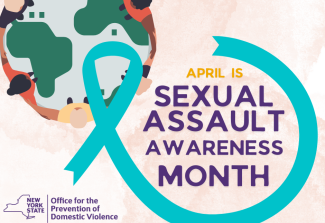University Police Trained in Fair, Impartial Policing
SUNY Plattsburgh University Police joined their colleagues from across the state at a program designed to heighten officers’ awareness of bias in policing.
Plattsburgh’s officers took the time to attend the program, held in Syracuse Jan. 12-14, as part of a continuing effort to strengthen University Police’s relationship with the campus community it serves.
“The ability to recognize one’s own implicit bias will help our officers better engage with our campus constituents,” said SUNY Plattsburgh University Police Chief Jerry Lottie. “I think this will make us better police officers.”
The program, taught in part by Lt. Col. JoAnn D. Johnson of the Illinois State Police Division of Internal Investigation, covered agency policy, leadership supervision and accountability, assessing institutional practices and policies and outreach to diverse communities.
The SUNY Police Chiefs Association said in a statement about the Fair and Impartial Policing program that “the implication of the science (of bias) is that even the best law enforcement officers may manifest bias because they are human, and even the best agencies … must be proactive in producing fair and impartial policing.”
SUNY Plattsburgh University Police Inspector Patrick Rascoe, who attended the session, will train the other officers in the department in the coming weeks. While SUNY Plattsburgh University Police has implemented similar training in the past year, this kind of specialized training will be new to officers, Lottie said.
The two newest SUNY Plattsburgh University Police officers underwent training that addressed some of the same concepts as Fair and Impartial Policing last month during their time in the Zone 9 Basic Police Academy. There, SUNY Plattsburgh Chief Diversity Officer J.W. Wiley provided the new recruits progressing through the academy with cultural competency training.
In early 2015, SUNY Plattsburgh formed a Fair and Impartial Policing Task Force to discuss University Police community policing initiatives and policies. The task force includes members of various college offices, including the Center for Diversity, Pluralism and Inclusion, Student Affairs and the Educational Opportunity Program.
As a result of the task force’s work, three officers participated in discussion-based diversity classes last semester taught by Wiley. Lottie said five additional officers are scheduled to take the same course this spring.
News

SUNY Recognizes Two Plattsburgh Seniors for Excellence in Academics, Leadership

Sexual Assault Awareness Month Events Planned Throughout April
‘Day of Visibility’ Recognizes, Highlights Members of Transgender Community
SBE Teams with CVPH Medical Center to Train Management Personnel
